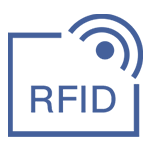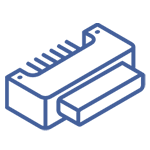

TE Connectivity Aerospace, Defense and Marine 25-060X
Manufacturer No:
25-060X
Tiny WHSLManufacturer:
Utmel No:
2460-25-060X
Package:
120
Description:
General Purpose Relays 1FormA SPST 120 VAC
Quantity:
Delivery:





Payment:











In Stock : Please Inquire
Please send RFQ , we will respond immediately.
United States
China
Canada
Japan
Russia
Germany
United Kingdom
Singapore
Italy
Hong Kong(China)
Taiwan(China)
France
Korea
Mexico
Netherlands
Malaysia
Austria
Spain
Switzerland
Poland
Thailand
Vietnam
India
United Arab Emirates
Afghanistan
Åland Islands
Albania
Algeria
American Samoa
Andorra
Angola
Anguilla
Antigua & Barbuda
Argentina
Armenia
Aruba
Australia
Azerbaijan
Bahamas
Bahrain
Bangladesh
Barbados
Belarus
Belgium
Belize
Benin
Bermuda
Bhutan
Bolivia
Bonaire, Sint Eustatius and Saba
Bosnia & Herzegovina
Botswana
Brazil
British Indian Ocean Territory
British Virgin Islands
Brunei
Bulgaria
Burkina Faso
Burundi
Cabo Verde
Cambodia
Cameroon
Cayman Islands
Central African Republic
Chad
Chile
Christmas Island
Cocos (Keeling) Islands
Colombia
Comoros
Congo
Congo (DRC)
Cook Islands
Costa Rica
Côte d’Ivoire
Croatia
Cuba
Curaçao
Cyprus
Czechia
Denmark
Djibouti
Dominica
Dominican Republic
Ecuador
Egypt
El Salvador
Equatorial Guinea
Eritrea
Estonia
Eswatini
Ethiopia
Falkland Islands
Faroe Islands
Fiji
Finland
French Guiana
French Polynesia
Gabon
Gambia
Georgia
Ghana
Gibraltar
Greece
Greenland
Grenada
Guadeloupe
Guam
Guatemala
Guernsey
Guinea
Guinea-Bissau
Guyana
Haiti
Honduras
Hungary
Iceland
Indonesia
Iran
Iraq
Ireland
Isle of Man
Israel
Jamaica
Jersey
Jordan
Kazakhstan
Kenya
Kiribati
Kosovo
Kuwait
Kyrgyzstan
Laos
Latvia
Lebanon
Lesotho
Liberia
Libya
Liechtenstein
Lithuania
Luxembourg
Macao(China)
Madagascar
Malawi
Maldives
Mali
Malta
Marshall Islands
Martinique
Mauritania
Mauritius
Mayotte
Micronesia
Moldova
Monaco
Mongolia
Montenegro
Montserrat
Morocco
Mozambique
Myanmar
Namibia
Nauru
Nepal
New Caledonia
New Zealand
Nicaragua
Niger
Nigeria
Niue
Norfolk Island
North Korea
North Macedonia
Northern Mariana Islands
Norway
Oman
Pakistan
Palau
Palestinian Authority
Panama
Papua New Guinea
Paraguay
Peru
Philippines
Pitcairn Islands
Portugal
Puerto Rico
Qatar
Réunion
Romania
Rwanda
Samoa
San Marino
São Tomé & Príncipe
Saudi Arabia
Senegal
Serbia
Seychelles
Sierra Leone
Sint Maarten
Slovakia
Slovenia
Solomon Islands
Somalia
South Africa
South Sudan
Sri Lanka
St Helena, Ascension, Tristan da Cunha
St. Barthélemy
St. Kitts & Nevis
St. Lucia
St. Martin
St. Pierre & Miquelon
St. Vincent & Grenadines
Sudan
Suriname
Svalbard & Jan Mayen
Sweden
Syria
Tajikistan
Tanzania
Timor-Leste
Togo
Tokelau
Tonga
Trinidad & Tobago
Tunisia
Turkey
Turkmenistan
Turks & Caicos Islands
Tuvalu
U.S. Outlying Islands
U.S. Virgin Islands
Uganda
Ukraine
Uruguay
Uzbekistan
Vanuatu
Vatican City
Venezuela
Wallis & Futuna
Yemen
Zambia
Zimbabwe
You may place an order without registering to Utmel.
We strongly suggest you sign in before purchasing as you can track your order in real time.
For your convenience, we accept multiple payment methods in USD, including PayPal, Credit Card, and wire transfer.
RFQ (Request for Quotations)It is recommended to request for quotations to get the latest prices and inventories about the part.
Our sales will reply to your request by email within 24 hours.
1. You'll receive an order information email in your inbox. (Please remember to check the spam folder if you didn't hear from us).
2. Since inventories and prices may fluctuate to some extent, the sales manager is going to reconfirm the order and let you know if there are any updates.
- TypeParameter
- Lifecycle Status
Lifecycle Status refers to the current stage of an electronic component in its product life cycle, indicating whether it is active, obsolete, or transitioning between these states. An active status means the component is in production and available for purchase. An obsolete status indicates that the component is no longer being manufactured or supported, and manufacturers typically provide a limited time frame for support. Understanding the lifecycle status is crucial for design engineers to ensure continuity and reliability in their projects.
ACTIVE (Last Updated: 1 week ago) - Factory Lead Time22 Weeks
- Mount
In electronic components, the term "Mount" typically refers to the method or process of physically attaching or fixing a component onto a circuit board or other electronic device. This can involve soldering, adhesive bonding, or other techniques to secure the component in place. The mounting process is crucial for ensuring proper electrical connections and mechanical stability within the electronic system. Different components may have specific mounting requirements based on their size, shape, and function, and manufacturers provide guidelines for proper mounting procedures to ensure optimal performance and reliability of the electronic device.
Flanges - Package / Case
refers to the protective housing that encases an electronic component, providing mechanical support, electrical connections, and thermal management.
120 - Number of Pins6
- Coil Voltage AC120V
- Pbfree Code
The "Pbfree Code" parameter in electronic components refers to the code or marking used to indicate that the component is lead-free. Lead (Pb) is a toxic substance that has been widely used in electronic components for many years, but due to environmental concerns, there has been a shift towards lead-free alternatives. The Pbfree Code helps manufacturers and users easily identify components that do not contain lead, ensuring compliance with regulations and promoting environmentally friendly practices. It is important to pay attention to the Pbfree Code when selecting electronic components to ensure they meet the necessary requirements for lead-free applications.
no - Part Status
Parts can have many statuses as they progress through the configuration, analysis, review, and approval stages.
Active - Moisture Sensitivity Level (MSL)
Moisture Sensitivity Level (MSL) is a standardized rating that indicates the susceptibility of electronic components, particularly semiconductors, to moisture-induced damage during storage and the soldering process, defining the allowable exposure time to ambient conditions before they require special handling or baking to prevent failures
1 (Unlimited) - ECCN Code
An ECCN (Export Control Classification Number) is an alphanumeric code used by the U.S. Bureau of Industry and Security to identify and categorize electronic components and other dual-use items that may require an export license based on their technical characteristics and potential for military use.
EAR99 - Max Operating Temperature
The Maximum Operating Temperature is the maximum body temperature at which the thermistor is designed to operate for extended periods of time with acceptable stability of its electrical characteristics.
85°C - Min Operating Temperature
The "Min Operating Temperature" parameter in electronic components refers to the lowest temperature at which the component is designed to operate effectively and reliably. This parameter is crucial for ensuring the proper functioning and longevity of the component, as operating below this temperature may lead to performance issues or even damage. Manufacturers specify the minimum operating temperature to provide guidance to users on the environmental conditions in which the component can safely operate. It is important to adhere to this parameter to prevent malfunctions and ensure the overall reliability of the electronic system.
-40°C - Reach Compliance Code
Reach Compliance Code refers to a designation indicating that electronic components meet the requirements set by the Registration, Evaluation, Authorization, and Restriction of Chemicals (REACH) regulation in the European Union. It signifies that the manufacturer has assessed and managed the chemical substances within the components to ensure safety and environmental protection. This code is vital for compliance with regulations aimed at minimizing risks associated with hazardous substances in electronic products.
unknown - Body Length or Diameter
Body length or diameter in electronic components refers to the physical dimensions of a component's housing, typically measured in millimeters or inches. It indicates the size of the component that affects its fit within a circuit board or system. This parameter is crucial for ensuring compatibility with the design and mounting of electronic devices. It can impact heat dissipation, electrical performance, and overall assembly efficiency. Accurate measurement of body length or diameter is essential for proper component selection and placement in electronic applications.
88.9mm - Contact Current(DC)-Max
Contact Current (DC) - Max is a parameter in electronic components that specifies the maximum amount of direct current (DC) that can safely flow through the contact or connection point without causing damage or failure. This parameter is crucial for ensuring the reliability and longevity of the component, as exceeding the maximum contact current rating can lead to overheating, arcing, or even permanent damage. Designers and engineers must carefully consider this specification when selecting components for a circuit to prevent potential issues and ensure proper functionality. It is important to adhere to the manufacturer's guidelines and specifications to avoid any potential risks associated with exceeding the maximum contact current rating.
5A - Contact Voltage(DC)-Max
Contact Voltage(DC)-Max refers to the maximum allowable direct current voltage that can be applied across the contacts of an electronic component without causing permanent damage or failure. It indicates the threshold above which electrical breakdown may occur, potentially harming the component's functionality. This parameter is crucial for ensuring the reliability and safety of components in various applications, as exceeding this value can lead to insulation breakdown or overheating.
28V - Max Voltage Rating (AC)
The parameter "Max Voltage Rating (AC)" in electronic components refers to the maximum alternating current (AC) voltage that the component can safely handle without being damaged. This rating is important for ensuring the component's longevity and reliability in a circuit. Exceeding the maximum voltage rating can lead to overheating, breakdown, or even permanent damage to the component. It is crucial to select components with voltage ratings that are suitable for the intended application to prevent malfunctions or safety hazards in the circuit.
120V - Termination Type
Termination Type in electronic components refers to the method used to connect the component to a circuit board or other electronic devices. It specifies how the component's leads or terminals are designed for soldering or mounting onto a PCB. Common termination types include through-hole, surface mount, and wire lead terminations. The termination type is an important consideration when selecting components for a circuit design, as it determines how the component will be physically connected within the circuit. Different termination types offer varying levels of durability, ease of assembly, and suitability for specific applications.
SCREW - Max Current Rating
The "Max Current Rating" parameter in electronic components refers to the maximum amount of electrical current that the component can safely handle without being damaged. It is an important specification to consider when designing or selecting components for a circuit, as exceeding the maximum current rating can lead to overheating, malfunction, or even permanent damage to the component. The max current rating is typically provided in amperes (A) and is determined by the component's internal construction, materials used, and thermal characteristics. It is crucial to ensure that the current flowing through the component does not exceed this specified limit to maintain the component's reliability and longevity.
5A - Throw Configuration
"Throw Configuration" is a term commonly used in the context of switches and relays in electronic components. It refers to the number of positions or states that the switch or relay can be set to. For example, a single-throw (ST) configuration means the switch has only one position, while a double-throw (DT) configuration means the switch has two positions.The throw configuration is important because it determines the versatility and functionality of the switch or relay. Different applications may require different throw configurations to control the flow of current or signals effectively. Understanding the throw configuration of a component is crucial for proper installation and operation within an electronic circuit.
SPST - Contact Current Rating
The current rating of a contact is defined as the current level that creates a certain temperature rise of the contact spring — usually 20°C or 30°C. Both electrical and thermal factors govern the heat created by the current.
5A - Relay Type
In electronic components, the parameter "Relay Type" refers to the specific classification or categorization of a relay based on its design, functionality, and application. Relays are electromechanical devices that are used to control the switching of circuits by opening or closing contacts in response to an electrical signal. The relay type typically indicates the specific characteristics of the relay, such as its switching mechanism (e.g., electromagnetic, solid-state), contact configuration (e.g., SPST, DPDT), operating voltage, current rating, and intended use (e.g., power relays, signal relays, automotive relays). Understanding the relay type is important for selecting the right relay for a particular application to ensure proper functionality and reliability.
Relay - Contact Current(AC)-Max
Contact Current (AC) - Max is a parameter used to specify the maximum alternating current that can safely flow through the contacts of an electronic component, such as a relay or a switch. This parameter is crucial for ensuring the proper functioning and longevity of the component, as exceeding the maximum contact current can lead to overheating, arcing, and potential damage to the contacts. Manufacturers provide this specification to help users determine the compatibility of the component with their specific application requirements. It is important to adhere to the specified maximum contact current to prevent malfunctions and ensure the reliability of the electronic system.
5A - Contact (DC) Max Rating R Load
Contact (DC) Max Rating R Load refers to the maximum direct current (DC) load that an electronic component, typically a relay or switch, can handle without risk of damage or failure. This rating indicates the highest permissible current that can pass through the contacts while maintaining reliable operation. It is crucial for ensuring the safety and longevity of the component in circuit applications that involve direct current. Exceeding this rating can lead to overheating, arc formation, or contact welding.
5A@28VDC - Contact/Output Supply Type
Contact/Output Supply Type is a parameter used to describe the type of connection or output supply required for an electronic component to function properly. This parameter specifies the specific type of contact or supply needed for the component to receive power or transmit signals. It can include details such as the number of pins, voltage levels, current requirements, and communication protocols. Understanding the Contact/Output Supply Type is crucial for selecting compatible components and ensuring proper functionality within an electronic system.
AC/DC - Relay Action
Relay action refers to the type of mechanical movement performed by a relay in response to an electrical signal. It typically describes how the relay transitions between its open and closed states to either allow or interrupt the flow of current in a circuit. Relay action can be classified as normally open or normally closed, indicating the default state of the relay contacts before any current is applied. The speed and responsiveness of this action can significantly affect the performance of the overall circuit in which the relay is used.
MOMENTARY - RoHS Status
RoHS means “Restriction of Certain Hazardous Substances” in the “Hazardous Substances Directive” in electrical and electronic equipment.
Non-RoHS Compliant
































